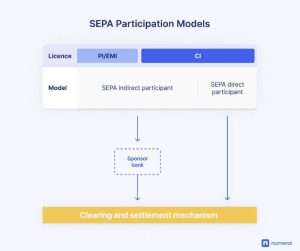In France, only eight establishments are presently direct participants in removing systems: La Banque Postale, BNP Paribas, BPCE Payment Services, Societe Generale, Crédit Mutuel, Crédit Mutuel Arkéa, Groupe Crédit Agricole, Memo Bank and DELUBAC & & CIE (allowing them to onboard riskier consumers). All the other institutions pass their circulations through these banks.
I had the chance to speak to a couple of banks or fintechs that were thinking of ending up being straight individuals in order to totally free themselves from a banking partner. The major motivations mentioned:
– Ownership of infrastructure, with reduced unit costs per settlement
– Greater freedom in risk monitoring, without reliance on a third-party controlled institution
– Strengthening of placing, with even more latitude on the product deal
But there are additionally disadvantages, which have actually led some financial institutions to become indirect individuals again:
– Significant financial investments: technological connection, membership fees, annual costs, compliance, certified personnels
– Technical and regulative complexity, which can affect technical, human and item agility
I allow you think of the frame of mind of the treasurer who is informed that his organization is going to end up being a direct participant: he and his team will certainly now need to handle the settlement with much better control … but without a safety net, given that there will certainly no more be a bank behind them to sustain them.
Theoretically, direct participation may seem easily accessible in a business strategy. In my point of view, it is far better to wait if you do not fulfill these criteria:
– More than 1,000 workers
– Secured revenue of greater than EUR200 million
– Already very solid internal organization competence
In short, in France, I see just one, and also then:-RRB-.
 .
.
(permitting them to onboard riskier consumers). All the other organizations pass their flows with these banks.
.

